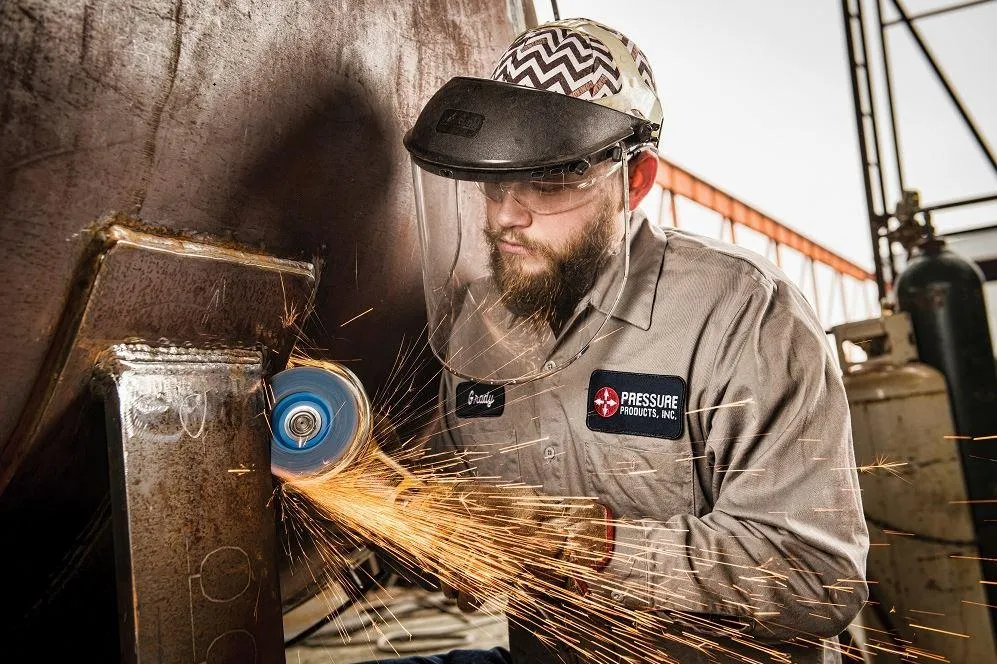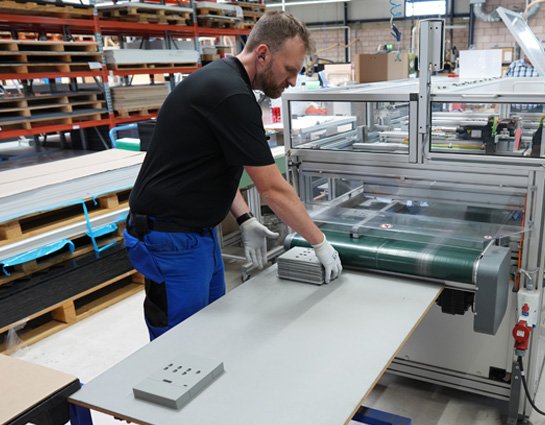Choosing the Right Abrasive Manufacturer: Factors to Consider
Choosing the right abrasive manufacturer is crucial for the effectiveness and quality of operations. Such a decision entails careful assessment of several factors including the types of abrasives on offer, the quality and consistency of products, customization and specialization options, the manufacturing process, environmental considerations, an organization’s industry reputation, and the price and cost-effectiveness of their products.
Types of Abrasives
- Natural Abrasives: Minerals such as corundum, diamond, emery, garnet, sand, and pumice are considered natural abrasives. These hard materials are used for cutting, grinding, and polishing other substances. While some natural abrasives are mined, others are found in nature. It is important to note that natural abrasives wear out faster than synthetic ones despite their hardness.
- Synthetic Abrasives: Synthetic abrasives are artificially produced through complex chemical processes. Examples include silicon carbide, aluminum oxide, ceramic, and zirconia alumina. Synthetic abrasives offer better performance and longevity compared to natural ones.
- Bonded Abrasives: Bonded abrasives consist of grains bonded using resins, rubber, or glass. These grains are formed into wheels, discs, and other shapes. The bonding process combines different grain types, resulting in specific performance characteristics. Bonded abrasives are widely used for grinding, cutting, and polishing surfaces.
- Coated Abrasives: Coated abrasives are attached to a backing material such as paper, cloth, or plastic using a resin or glue. Sandpaper, belts, and discs are examples of products featuring coated abrasives. They are used for smoothing surfaces and finishing processes.
- Superabrasives: Superabrasives are ultra-hard materials like diamond or cubic boron nitride. Designed for heavy-duty grinding tasks, they are used for materials such as carbides, ceramics, and ferrites.
- Non-Woven Abrasives: Non-woven abrasives are made from nylon fibers impregnated with abrasive grains and bonded with synthetic resins. Abrasive pads and scrub pads fall under this category. They are employed for achieving a fine finish or when working on delicate surfaces that harsher abrasives could damage.
- Metallic Abrasives: Metallic abrasives are manufactured using steel shots, grit, and stainless steel, among other metals. They are relatively inexpensive and find applications in cleaning and peening processes.
- Biodegradable Abrasives: Biodegradable abrasives are environmentally safe yet efficient for cleaning. Examples include corn cob grits and walnut shells, commonly used in blasting applications.
- Specialty Abrasives: Specialty abrasives are tailored for specific requirements and consist of abrasive brushes, sticks, and stones. The types of specialty abrasives can vary based on the unique needs of individual customers or applications.
- Micro Abrasives: Micro abrasives are smaller and finer, specifically designed for precision work. They are used in glass, ceramics, electronics, and composites. To learn more about Micro abrasives, consult grish.com
Understanding these different types of abrasives will help guide your decision-making process when choosing the proper abrasive manufacturer. It is crucial to find a manufacturer specializing in the specific type of abrasive that best suits the needs of your application.
Quality and Consistency of Products
High-quality abrasives offer exceptional performance, durability, and cost-effectiveness. On the other hand, low-quality abrasives can negatively impact your work. Product quality depends on raw materials, the manufacturing process, and the final product’s finish. Additionally, the grit size of an abrasive plays a significant role in its quality, as it ensures a smooth surface and consistent finishes. The safety features of the products also contribute to their quality. Abrasives designed with safety guards or dust reduction capabilities are generally of higher quality. Furthermore, higher-quality abrasives can reduce waste due to increased material removal efficiency.
Consistency in abrasive manufacturing is equally crucial as it consistently meets product performance expectations. This consistency builds customer confidence, fosters brand loyalty, and encourages repeat business. Product consistency is essential to the manufacturer’s production processes and strict quality control regulations. Adherence to specific product specifications such as grit size, hardness, crystal structure, and bonding material composition is essential in providing predictable performance. Moreover, manufacturers must ensure consistent supply to meet customer demands and avoid disrupting operations.
Quality control and assurance in manufacturing are vital in maintaining product quality and consistency. Manufacturers must implement routine testing, inspections, strict process control protocols, skilled labor, and regular equipment calibration. ISO certifications and other recognized quality management systems are essential indicators of a manufacturer’s commitment to quality.
Customer feedback and reviews provide valuable insights into a manufacturer’s product quality and consistency. Positive reviews consistently demonstrate a manufacturer’s dedication to maintaining high-quality and consistent products. Companies with robust customer support systems show their commitment to addressing any complaints related to quality or consistency.
Manufacturers who prioritize innovation and continuous improvement strive to provide high-quality and consistent products. Ongoing research and development, regular equipment upgrades, and innovations in the manufacturing process contribute to product improvement. A commitment to continuous improvement showcases a company’s dedication to consistently ensuring the best quality products.
To select the proper abrasive manufacturer, gathering detailed information about the manufacturer’s processes, standards, customer feedback, and commitment to continuous improvement is crucial.
Customization and Specialization Options
In the Customization and Specialization Options” section, it is essential to consider several key features that abrasive manufacturers can offer their customers. Customization options are vital in choosing the proper manufacturer for your needs. Here are some crucial factors to consider:
- Custom Formulation: Manufacturers should provide abrasive formulations tailored to specific applications. This includes adjusting the composition to balance hardness, toughness, and friability for unique customer requirements.
- Different Types of Abrasives: Choose a manufacturer that offers a variety of materials or particles, such as coated, bonded, super abrasives, or micro-abrasives, to suit specific applications. Versatility is crucial for businesses with diverse needs.
- Size and Shape Customizations: Abrasive grains come in various sizes and shapes suitable for different applications. Ensure that the manufacturer offers granularity customization to meet your exact requirements.
- Application-Specific Customization: Depending on the application, manufacturers might specialize in abrasives for sectors like automotive, aerospace, metallurgy, or woodworking. Select a manufacturer that aligns with your industry needs.
- Special Coating Services: For specific applications, your abrasives might require anti-static, waterproof, or stearate coatings. Verify that the manufacturer can provide these specialty services if needed.
- Custom Packaging: Consider manufacturers that offer custom packaging services, allowing you to tailor package sizes, add branded labels, or opt for bulk packaging. This can be beneficial for distribution requirements.
- Standalone or Integrated Systems: Determine whether you need a manufacturer solely focused on abrasive materials or one that offers integrated systems, including tools and machinery. Choose the type that best fits your needs.
- Design Capabilities: Check the manufacturer’s design capabilities, including CAD/CAM facilities. This can help design products according to specific requirements or improve existing designs.
- Quick Turnaround: Manufacturers’ lead time for custom orders is essential, mainly if your operation relies heavily on abrasive materials. Select a manufacturer that can provide a speedy delivery.
- Compliance with Standards: Ensure the abrasive manufacturer can customize products while maintaining compliance with quality, safety, and environmental standards. Custom solutions should maintain these essential elements.
It is crucial to verify the manufacturer’s reputation and their previous custom projects. Customization and specialization require expertise, experience, and a commitment to quality and customer satisfaction. Therefore, it is vital to choose a reliable manufacturer that offers a high level of support.
Manufacturing Process and Facilities
The manufacturing process of abrasives combines sophisticated technology with scientific principles. Expert knowledge is required to find the right balance between hardness, toughness, and impact resistance of the abrasives. Here are the critical steps involved in the manufacturing process:
- Raw Material Processing: Raw materials such as aluminum oxide, silicon carbide, emery, garnet, and pumice are extracted and processed. The materials are then categorized based on their grain size.
- Shaping and Forming: The prepared raw materials are crushed into the desired shape using a machine press. The shape can be customized to meet specific product requirements.
- Heating: The formed abrasives undergo a high-temperature firing process in a furnace. This enhances the hardness of the abrasive.
- Cooling and Inspecting: After heating, the abrasives are cooled and thoroughly inspected for quality control. Shape and size grading, as well as tests for toughness and hardness, are conducted. Non-conforming pieces are rejected and recycled.
- Coating and Finishing: Depending on the product, the final step may involve coating the abrasive with compounds like stearates to improve performance or lifespan.
Manufacturing facilities for abrasives must be designed, constructed, and maintained to ensure the consistent production of high-quality products. These facilities typically possess the following features:
- Production Area: Sufficient space is required for manufacturing processes such as material processing, shaping, and heating.
- Storage Space: Adequate storage space is needed for raw materials and finished products. Certain materials and products may also require a controlled temperature and humidity environment.
- Quality Control Lab: An in-house lab must conduct routine tests on raw materials and finished products to ensure quality.
- Safety Equipment: Due to the hazardous materials involved, facilities should have safety measures such as dust collection systems, fire safety equipment, and personal protective equipment for employees.
- Machinery: The facilities should have the latest technology machines for efficient production, including high-pressure forming machines, high-temperature furnaces, cooling systems, and product sizing and finishing equipment.
- Shipping and Receiving Area: Organized areas for receiving raw materials and dispatching finished goods are essential for the supply chain.
- Environmental Controls: Modern facilities should have environmental controls in place to manage waste and emissions, considering the sensitive nature of the manufacturing processes.
- Worker Amenities: Facilities should provide employee amenities, including break rooms, locker rooms, and training offices.
Abrasive manufacturers can consistently deliver high-quality products by ensuring an integrated manufacturing process and well-equipped facilities.
Environmental Considerations
The manufacturing process of abrasives can have a significant impact on the environment. Abusive production’s environmental footprint is determined by factors such as energy usage, emissions, and waste disposal. Proper management of hazardous materials is essential to protect human health.
Material selection is crucial in minimizing environmental harm. While some materials, like silica sand, can cause health issues like silicosis and lung cancer, opting for non-toxic and recyclable alternatives like garnet is more environmentally friendly.
Waste disposal protocols are essential for both manufacturing and post-use stages. Recycling abrasive materials can significantly reduce waste, but not all materials are recyclable, leading to environmental pollution in landfills.
Energy consumption during manufacturing is closely tied to CO2 emissions and global warming. Choosing an energy-efficient manufacturer can significantly reduce the environmental impact of abrasive products.
Water consumption is also crucial, as specific manufacturing processes require large amounts of water. Evaluating the environmental impact of abrasive manufacturing requires assessing the water footprint of the process.
The carbon footprint of abrasive production covers the product’s entire life cycle. Manufacturers prioritizing reducing their carbon footprints through strategies such as using renewable energy sources or offsetting emissions elsewhere are preferred.
Compliance with environmental regulations is a must when selecting an abrasive manufacturer. Ensuring that the manufacturer follows sustainable practices and uses environmentally friendly packaging will further minimize ecological harm.
Innovation and research are essential in minimizing environmental impact. Manufacturers constantly exploring new techniques and products can assist in reducing waste, resource use, and ecological harm.
Transportation also affects the overall environmental impact of abrasive products. Choosing locally available manufacturers when possible can significantly decrease transportation emissions.
These considerations are general and may vary between manufacturers and products.
Industry Reputation and Customer Feedback
When selecting an abrasive manufacturer, assessing their industry reputation and customer feedback is crucial. The manufacturer’s reputation within the industry is significant in gauging their reliability and efficiency. Leading players such as Saint-Gobain Abrasives, 3M, and Bosch have outstanding reputations. Saint-Gobain is globally recognized for its innovative and high-quality abrasive solutions. 3M, known for over a century, is renowned for producing abrasive products for diverse industries.
Bosch, a trusted brand, offers a wide range of high-performing abrasive products. Positive customer feedback is another crucial aspect to consider. Reviews on platforms like Google and Yelp can provide valuable insights. Customers praise Saint-Gobain for efficiency, durability, and innovative solutions. 3M customers commend the brand for reliability and effectiveness. Bosch receives positive feedback for its high performance and value for money. Moreover, certifications, awards, industry participation, and strong business relationships with reputable companies further enhance the manufacturer’s reputation. A thorough evaluation of these factors is essential in selecting a reliable and efficient abrasive manufacturer.
Price and Cost Effectiveness
A factor to consider when evaluating the cost-effectiveness of an abrasive manufacturer is the efficiency and return on investment (ROI) of their products. Efficient abrasives can increase productivity by reducing cutting or grinding time. Additionally, high-quality abrasives can result in a better finish with fewer defects, reducing the need for rework and saving time and resources. Manufacturers like 3M are known for their efficient abrasive products that provide a high ROI due to their long-lasting performance and ability to deliver consistent results. Customization:
It is worth considering the cost-effectiveness of a manufacturer’s ability to customize abrasive products. Some manufacturers offer the option to tailor abrasives to specific applications or requirements, which can result in improved performance and reduced waste. While customization may come at an additional cost, the benefits of a tailored solution may outweigh the initial price. 6. Long-Term Partnership: Lastly, when assessing cost-effectiveness, evaluating the potential for a long-term partnership with the manufacturer is essential. Establishing a solid relationship can lead to benefits such as preferential pricing, technical support, and access to new product developments. These factors can contribute to overall cost savings and enhanced value over time.
In conclusion, when choosing the proper abrasive manufacturer, it is crucial to consider comparing prices and understanding the pricing structure, cost-to-performance ratio, efficiency and ROI, customization options, and the potential for a long-term partnership. By carefully evaluating these factors, buyers can make an informed decision that maximizes cost-effectiveness and meets their needs.
Selecting an abrasive manufacturer is a task that warrants thoughtful examination. It’s essential to consider the types of abrasives, product quality, customization abilities, manufacturing facilities, environmental impact, company reputation, price, and cost-effectiveness. A comprehensive understanding and careful consideration of these factors can ease your decision-making process, ultimately helping you choose a reliable partner who will meet your expectations and contribute to your business’s success. By weighing these crucial elements, you can ensure a profitable and sustainable partnership with the proper abrasive manufacturer, enhancing operational efficiency and superior results.







